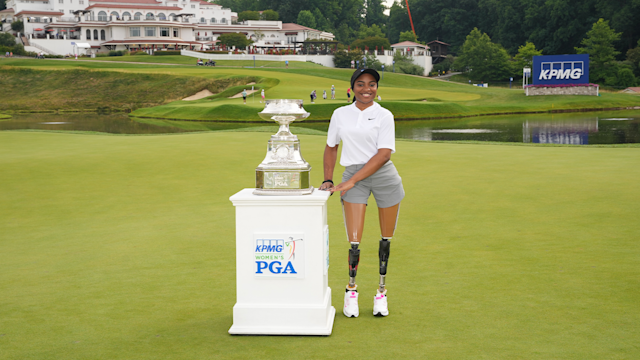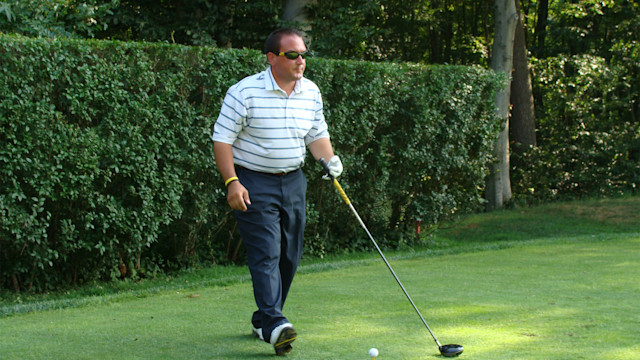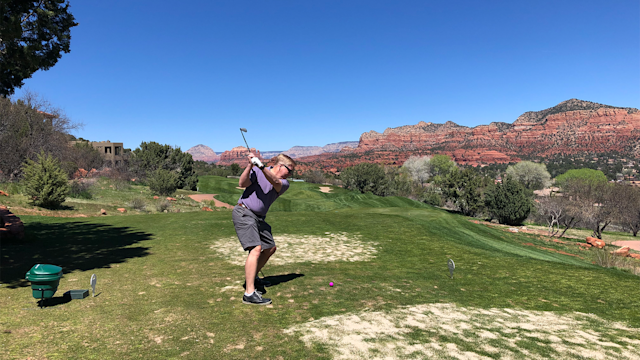Game Changers
It’s About the People: Tom Shea, PGA, Gives Back Through Golf
By Adam Stanley
Published on
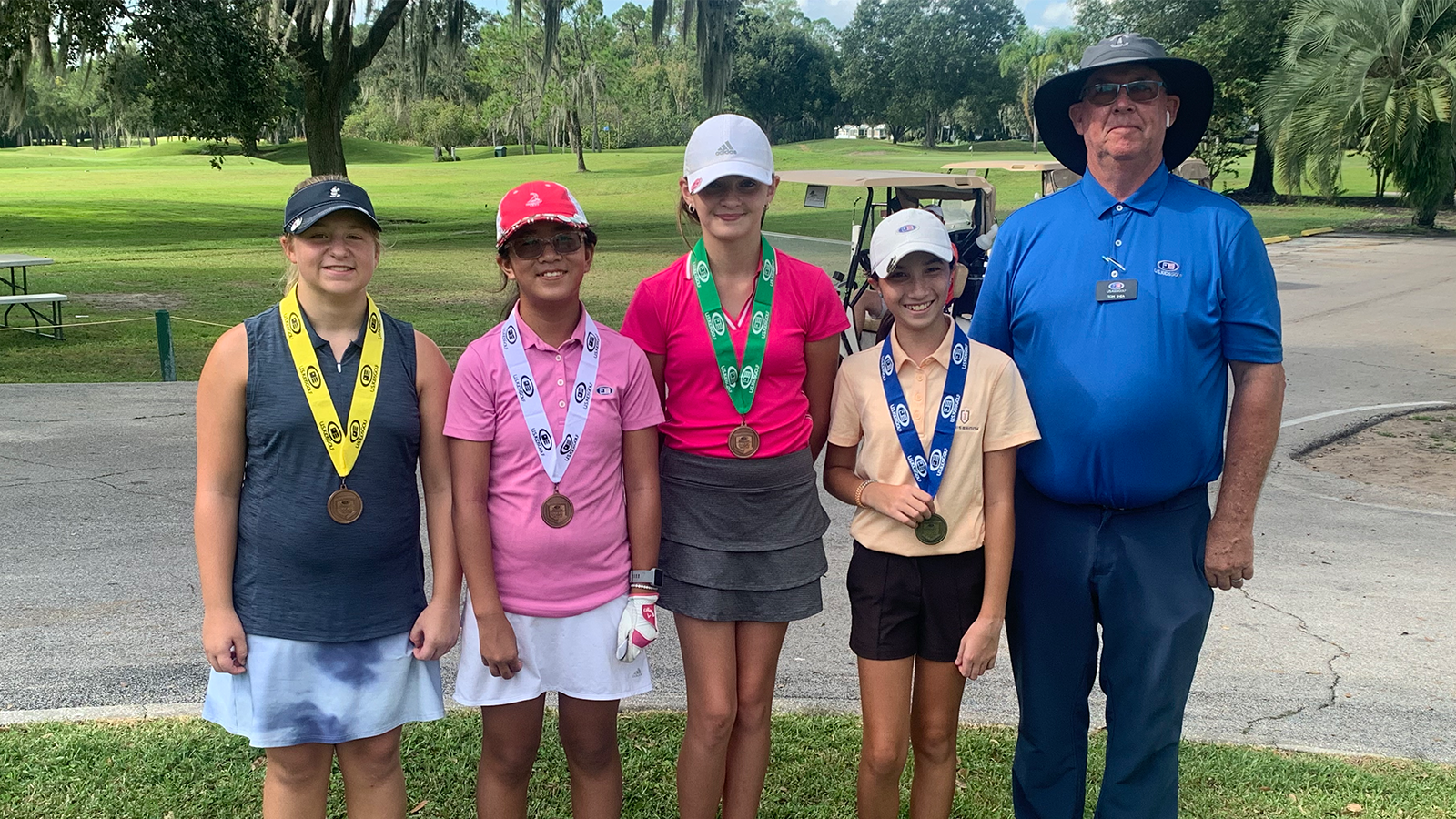
It’s always been about the people, Tom Shea, PGA says, and for them, he’s forever thankful.
Shea has been a PGA Member for 30 years. It’s meant the world to him.
But life hasn’t always been linear, or easy, for him, whose last name at birth was actually Burke.
Shea’s birth mother died when he was six, and his father was an alcoholic and abusive. He gave up the young Shea when he was eight and he went into the foster home system then.
“I remember when I was really young and was just trying to survive. I got caught shop-lifting. The police bring me home and the next thing you know I’m getting beat for it,” says Shea. “Those are things you don’t forget.”
Being given up by his birth father, albeit a difficult concept to grasp now, was the best thing to ever happen he says. It took a while to trust what was going on in the foster system, but the stability helped with everything.
The real driving force for that stability, he says, was golf.
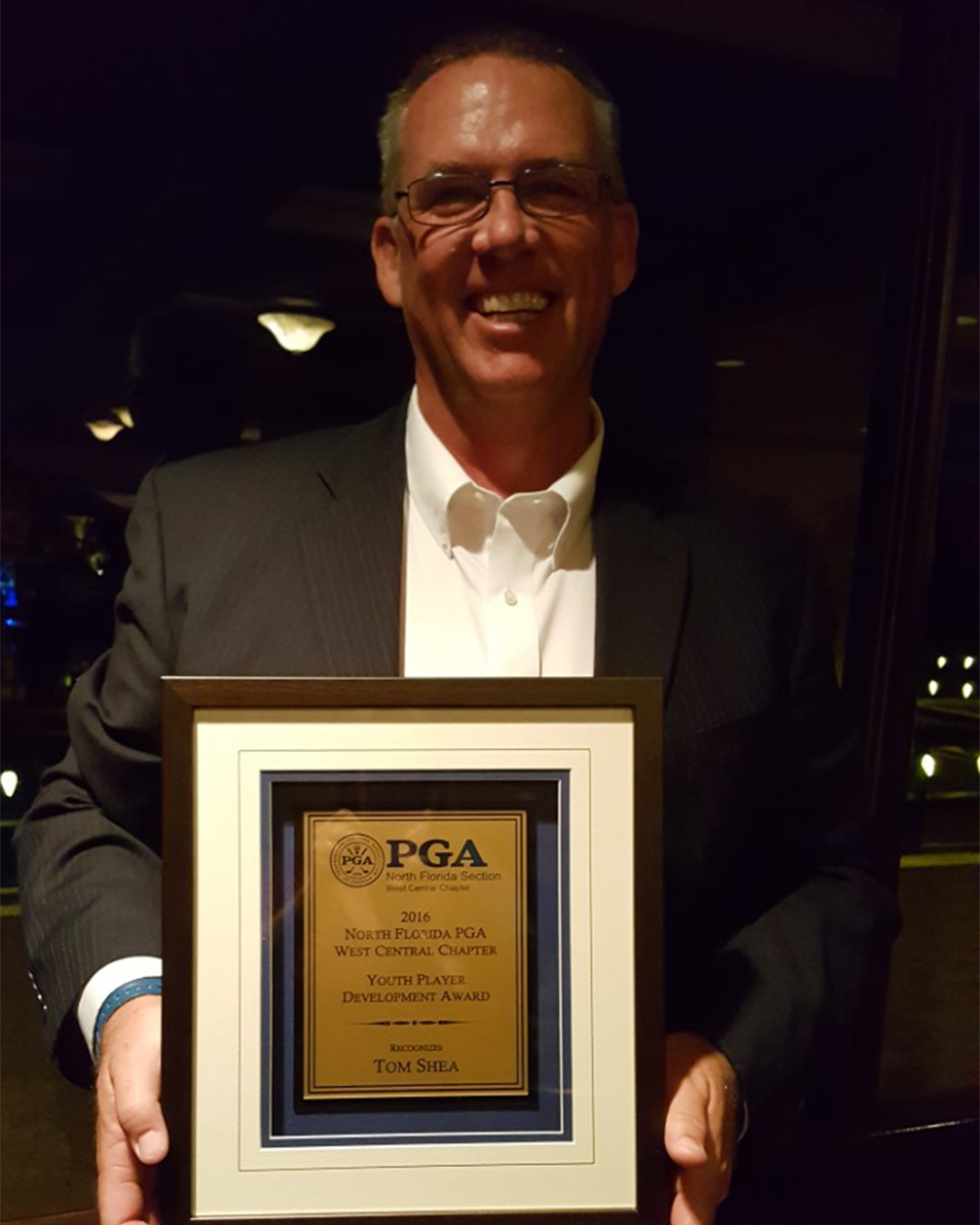
When Shea was 12 his adopted parents took him to the golf course in New Jersey, Beacon Hill, and the people there had a great influence on him. How to do things right, he says, but also how not to do things. It was the “working-class rich” at that club – the guy who owned the liquor store (where sometimes New Jersey’s favorite son, Bruce Springsteen, might be seen), or the guy who owned the auto-repair shop.
He hated golf though, Shea says with a laugh, because it was hard. The golf course became a sanctuary though. He and his friends would sleigh ride there in the winter, party in the summer. It was a big playground.
When he was 14 there was a guy who Shea caddied for, and he told him he was good – but he was often having trouble breaking 100.
“I was like, ‘well I can do that.’ The rest his history,” says Shea. “I worked on my game. Fell in love with it. Played high school. Played college. And that’s what I wanted to do with my life.”
Shea headed to California at 19 and tried his hand at mini tours. His adopted parents wanted him to go to Florida, but he ended up heading across the country and moving in with three girls – Shea says with a laugh. He came back a few years later and got into the golf business right away at another course in New Jersey.
“I feel (like) I’ve been in a fantasy world for 30 years,” says Shea with a laugh. “My parents were always after me to get a real job but I just loved what I did. It was never a job."
Shea remains a PGA Teaching Professional at The Eagles Golf Club, while also being heavily involved in US Kids Golf near Tampa, Fla. He’s a father himself, too, to Jesse, Shannon, and Nicholas. When his eldest turned eight, that was tough. Shea’s voice breaks. How could someone give up their kid at that age, he asks.
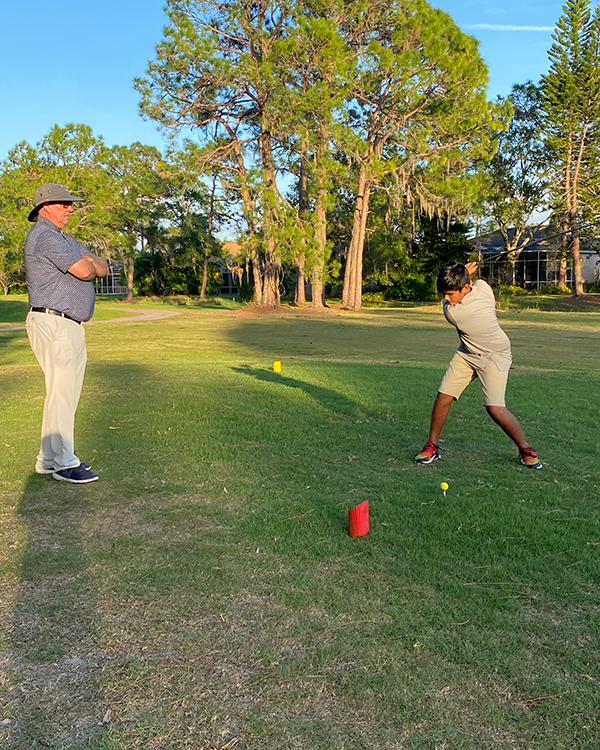
But teaching youngsters and being part of junior golf came naturally to him he says. There was just an instant connection because of what he went through while growing up.
“(Kids) would say, ‘oh, you would have no idea what I’m going through,’ but yes, I did,” says Shea. “The kids I always gravitated towards were the wise guys, or the ones that would talk too much because that was me."
It’s not just on the golf course where Shea is helping out.
He recently became a house parent and a worker with “A Kid’s Place” – a tree-lined, multi-acre campus for foster kids in Tampa. It’s a residential program that services children from birth all the way to age 18 who have been removed from homes for a variety of reasons.
Shea admits there was a tough time when he just started as a house parent – where he works seven days on, seven days off – and he had gone straight from that job to Innisbrook for a US Kids event. It was hard to see the kids who he left behind the fence to get to the country club to see kids being “normal” and having fun with their friends, swimming in the pool, playing golf and just being kids.
Still, that was a moment when he realized what he was doing was right. He was so thankful for his foster family who introduced him to golf, and his golf family who has helped him navigate a difficult past for the last three decades.
“It became my therapy,” says an emotional Shea. “I didn’t realize that there were things to do with my past (I had to work through). It’s another avenue to use those resources to help the kids that need help."
“Really just trying to honor my mother and just looking for opportunities to give back.”
